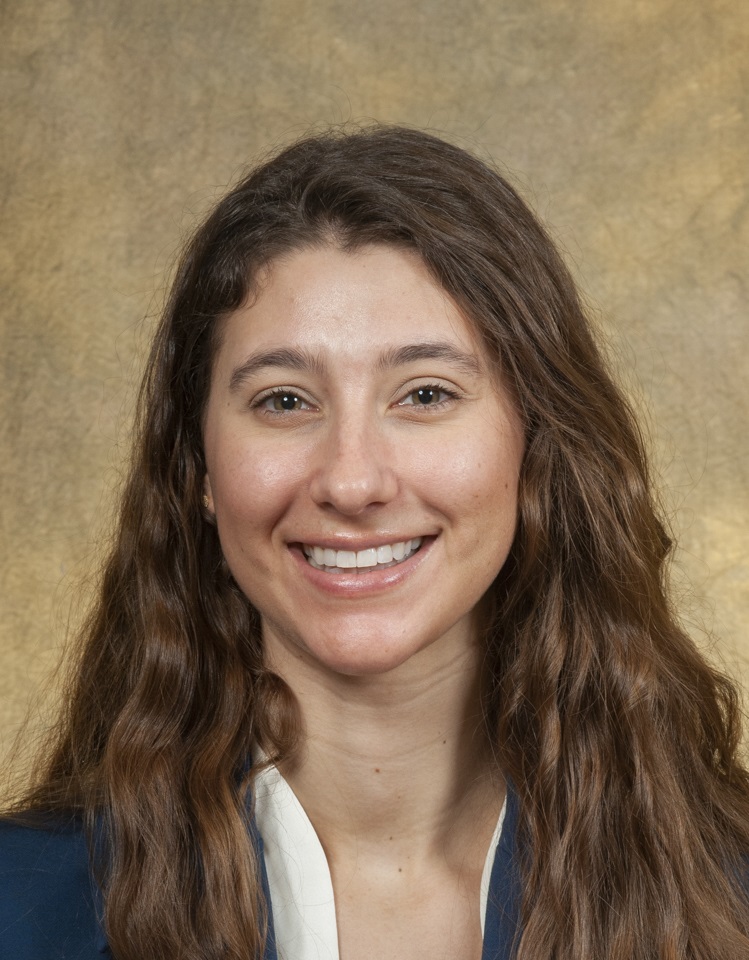A Wayne State University School of Medicine student was the principal investigator on a study examining whether a patient’s vital signs while receiving intravenous ketamine can predict its effectiveness in treating major depressive disorder and bipolar depression.

Katherine Keith, now in her third year of medical school, launched the retrospective study a few months before she was accepted. She completed the work in her pre-clinical years.
“Vital Sign Changes During Intravenous Ketamine Infusions for Depression: An Exploratory Study of Prognostic Indications,” is published in the Journal of Clinical Psychopharmacology.
Ketamine is a medication primarily used for induction and maintenance of anesthesia. It induces a trance-like state, providing pain relief, sedation and amnesia. It is also called “Special K” among recreational users.
“I am interested in research on ketamine because much of its mechanism of action as an antidepressant is unknown. I was motivated by the prospect of identifying objective findings, such as vital signs, that could be used as predictors of response to ketamine and ultimately guide clinical practice,” Keith said.
She led the study with support from faculty in the Department of Psychiatry and Behavioral Neurosciences, including Nicholas Mischel, M.D., Ph.D., an assistant professor and director of Interventional Psychiatry and Neuromodulation Research.

“Rapid-acting medication infusions for treatment-resistant depression are a novel modality. These treatments have acute physiologic effects and are delivered in the office or hospital setting. Subanesthetic doses of ketamine have physiologic effects on the cardiovascular system and antidepressant effects on neurobehavioral systems, but the relationship between these two phenomena is not known,” Dr. Mischel said.
The department treats patients with esketamine infusions, a derivative of generic ketamine, at its clinic in the WSU Tolan Park Medical Building in Detroit. Dr. Mischel treats patients with the same infusion in association with Greenbrook Neurohealth, a network of outpatient clinics.
In spring 2020, Keith was pursuing her master’s degree at Wayne State and working at Michigan Progressive Health, an outpatient clinic in Royal Oak that also provided ketamine therapy for patients with mood disorders.
“Dr. Mischel came into the clinic to meet with Dr. Megan Oxley, the medical director, and during this meeting we discussed opportunities for research. I let Dr. Mischel know that I was a graduate student at WSU and interested in starting a project with him. It took off from there,” she said.
The study population was drawn from the clinic, where treatments are directed by Dr. Oxley, a 2009 WSU alumna and co-author. More than half of the study group -- 51.7% -- responded to the treatment, according the Patient Health Questionnaire. The same group showed a significantly greater increase in systolic blood pressure response during the first infusion compared with those who didn’t respond to treatment.
“I was surprised to see a clear difference in any vital sign response between the groups of patients that had an antidepressant effect versus those who did not,” Dr. Mischel said.
There was no difference seen in diastolic pressure, heart rate, or rate pressure product in the first treatment, or any thereafter.
“Even though the study population was relatively large, it is still challenging to resolve differences in physiologic responses, even true ones, particularly when measuring blood pressure in a clinical setting rather than highly controlled laboratory settings,” he added.
Since gaining U.S. Food and Drug Administration approval in 2019, ketamine and related infusion therapies have been increasing in use. Treatments that include rapid-acting psychopharmacologic agents in combination with psychotherapy are an active area of current research, with agents like MDMA – recreationally known as ecstasy or molly – being examined for use to facilitate treatment of post-traumatic stress disorder, according to a May 2021 article published in Nature Medicine.
Keith led and performed much of the work, including data acquisition, analysis and writing. Besides Drs. Mischel and Oxley, the study team included Jamarie Gellar, M.D., a psychiatry resident at University of Michigan; Alexis Froelich, a WSU medical student; and Cynthia Arfken, Ph.D., a WSU professor of Psychiatry and Behavioral Neurosciences.
A follow-up study examining the hemodynamic response to esketamine infusion in relation to neurobehavioral effects is now in progress. The study is expected to provide data collected in a controlled laboratory setting with detailed non-invasive measurements of cardiac output.